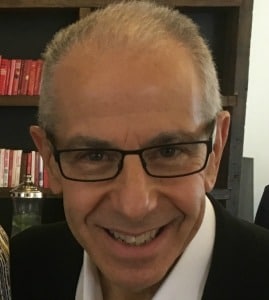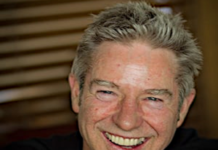
(By Gary Berkowitz) Good news! You have a successful, well-rated morning team on your station. Bad news: They do not get along off the air. With so much emphasis on post-show events (promotions, events, appearances, social media), what’s a PD or GM to do?
I think we could all agree that on-air staffs and drama are synonymous. But what happens when there is real-life conflict? Here are some suggestions from programmers and managers who either currently have or have had this kind of problem.
Let’s start with a guy who works with morning shows all the time: morning show coach/consultant Steve Reynolds. He says, “Of course they need a relationship off-air. That’s crazy to think they don’t. The respect they have for each other, the trust they build, their ability to communicate and resolve issues is felt in their on-air chemistry. That takes work and commitment.”
John Gehron, COO at AccuRadio and longtime PD and manager, also has some sage words of advice. “If they are successful, then they are getting the job done on the air. That’s what counts. I don’t think it’s necessary to hang out off the air on their own time.”
Don Kellogg of Lagniappe Broadcasting in Louisiana shares this: “I have actually had to step in between talent before to keep a fistfight from going down. As the operations manager, I explained to both employees that they are both creating a negative work environment for those around them and that is not conducive to creativity and will not be tolerated.”
Country consultant Joel Raab comments, “I think if you can manage the dislike, it can enhance creative spark. Worked with a morning team that literally hated each other off air but sounded like best buds on the air — and had great ratings.”
Music Master’s Marianne Burkett has a good angle on it. “Sounds like an ‘old married couple’ issue. They probably just need to spend some time hanging out together — alone.”
Former radio producer, now mid-morning talent on Providence’s WPRI-TV Will Gilbert has a different look at the subject. “I’ve worked with both — teams that really do like each other or at the very least, deal with each other, and then teams that can’t stand each other. It’s tough to fake it on the air that much. Listeners are more and more media-savvy, and many who listen every day can ready between the lines. For me, I could not be happier with my partner. Granted it’s TV and not radio — I truly could not have asked for a better ‘TV wife.’”
Sports radio consultant Tom Bigby has spent decades dealing with talent as one of the founding fathers of the all-Sports format. “You must be talking about most Sports radio talent. I’ve always thought a little bit dysfunctional group gets better ratings. And makes the talent more memorable.”
Longtime Boston-New England personality Karen Blake feels conflict may have a good place. “Also, a manager can really turn things around if he/she is truly a great manager. I can tell you firsthand that having a bad manager at times in my career has been very stressful, when you go to them for help and they do nothing. I’ve lost sleep many nights over a manager that has no balls. I will say, though, some of the best teams are the ones with a little tension. So it’s not a bad thing, but a good manager needs to keep an eye on the quarterbacks of the station and step in when needed.”
Of course, radio is not the only business that needs to deal with personality conflict, as Jim McKeon points out. “Simon and Garfunkel couldn’t and can’t stand each other. They found ways to work together, get along onstage, and achieve greatness. Offstage, separate ways, as Journey says!”
Bob Zamboni (Bob DeCarlo) has a unique perspective as a PD and on-air talent. “While I had a partner for 14 years in Tampa, I was the PD for eight of those years and had a cordial but not friendly relationship off the air. I was a polar opposite to him in manner but was a fan of his wit and humor. At times, we were at each other’s throats, but realized as a team we were doing something special. My philosophy was to accent the positive and keep apart unless necessary.”
How about when you’re married to your partner? On-air talent Kelly Cozadd shares these thoughts. “If they are highly rated and successful, then they seem to be managing it. You don’t have to like everyone you work with, or like them all the time. I did a team morning show with my husband for 25 years. We didn’t always like each other.”
Programmer Tom Calococci says, “Sometimes people lose perspective. You don’t know what you’ve got till it’s gone. If they’ve got a good thing going on the air, they should keep that in mind. Hopefully you all get it worked it out.”
Tom’s comments really bring it home: “Don’t lose perspective” and “You don’t know what you’ve got till it’s gone.” This is especially important when you look at what has been going on in morning television. NBC’s Today Show and CBS’s This Morning both lost main anchors (Matt Lauer and Charlie Rose) and have not only rebounded, but ratings are up substantially since the departures. Everyone is replaceable.
Over the years, I have known many personalities who found themselves in this type of conflict. In most cases, when it’s all over, they regret the behavior. Many times it leads to dismissal, and they always say, “It wasn’t worth losing my job over.” Don’t lose perspective. Don’t blow a good thing. If it’s working in the studio, it’s working. Either way, if you value your position, it’s up to you to make it work.
Gary Berkowitz is President of Detroit based Berkowitz Broadcast Consulting, specializing in ratings improvement for AC radio stations. www.garyberk.com. Gary can be reached at (248) 737-3727 or [email protected]






I can’t imagine working in a team where I couldn’t get along with the other person. Luckily I never had to, I can work with just about anyone. Life is too short for negativity and conflict. I agree, smooth is better!
Great feedback. I have worked with them all. Managers as well. Smooth is better.